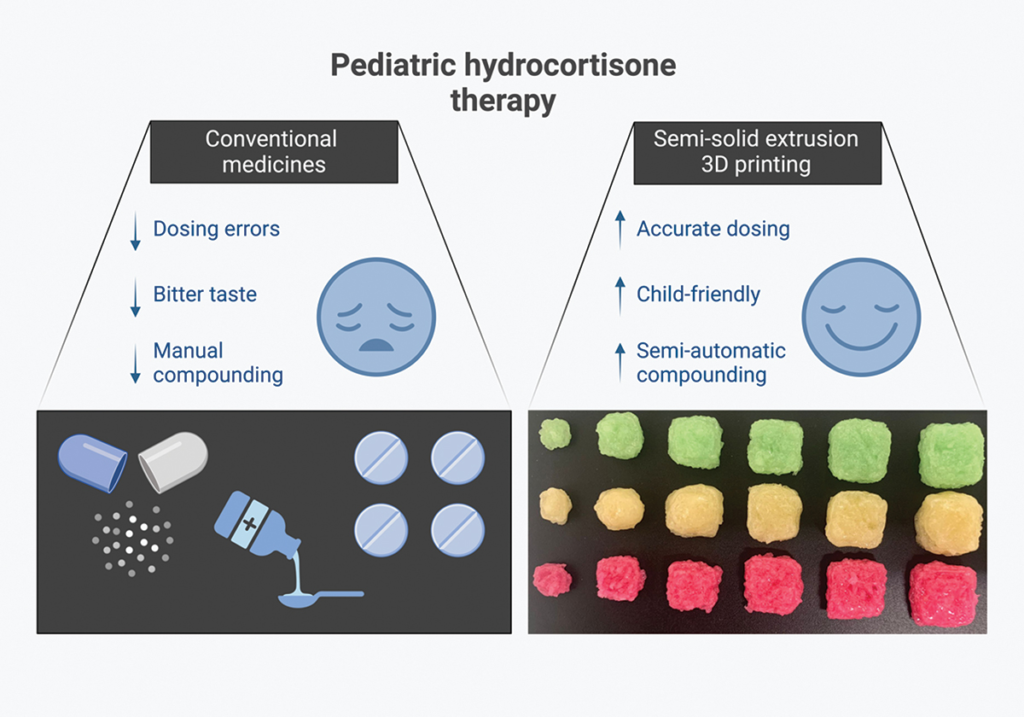- Home
- 3D printing personalised therapies for paediatric patients affected by adrenal insufficiency
- 3D printing personalised therapies for paediatric patients affected by adrenal insufficiency
Children with adrenal insufficiency depend on daily hydrocortisone to stay healthy but there's a catch: the right doses and child-friendly formulations do not really exist. That’s why we have turned to 3D printing to offer an efficient, personalised solution for children.
Semi-solid extrusion 3D printing was used to create custom "printlets" (3D printed tablets) — chewable hydrocortisone tablets tailored specifically for children by being chewable and incorporating taste-masking flavours. These chewable printlets were produced in exact doses ranging from 1 to 6 mg, and they come in a variety of colours and flavours to make them more appealing for the young patients.
The developed pharma-ink — mixture of hydrocortisone and excipients — could be consistently printed. The printlets dissolved quickly and remained stable for at least a month.
These printlets will be part of a clinical trial in children at Vall d’Hebron University Hospital in Barcelona. The manufacturing process will be transferred to and validated at the hospital to produce the printlets directly in the hospital pharmacy.
Not only do these results show that 3D printing can deliver safe, child-friendly medications, but the paper also paves the way for future clinical trials. We have compiled all necessary documentation to meet regulatory standards set by the Spanish Medicines Agency, providing a helpful roadmap for others planning to conduct clinical trials of 3D printed medicines in paediatrics.
Read more here!



